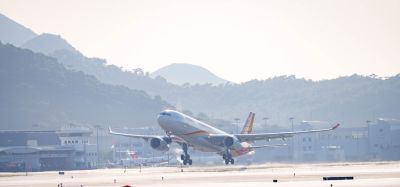Providing technical and industry expertise
- Like
- Digg
- Del
- Tumblr
- VKontakte
- Buffer
- Love This
- Odnoklassniki
- Meneame
- Blogger
- Amazon
- Yahoo Mail
- Gmail
- AOL
- Newsvine
- HackerNews
- Evernote
- MySpace
- Mail.ru
- Viadeo
- Line
- Comments
- Yummly
- SMS
- Viber
- Telegram
- Subscribe
- Skype
- Facebook Messenger
- Kakao
- LiveJournal
- Yammer
- Edgar
- Fintel
- Mix
- Instapaper
- Copy Link
Posted: 1 August 2008 | Barry Goff, Chairman, International Friction Pavement Association (IFPA) | No comments yet
The IFPA was created to focus beyond engineering and manufacturing, and bring in representation as we have done with our Board of Directors: someone from the airlines (Southwest) with a pilot’s perspective; someone from the manufacturing side (Boeing); and others to begin looking at runway friction testing, from the end-users’ perspective. An initial goal is to host next spring, at a new testing facility, a workshop for industry to begin working through issues and exploring standardised friction testing practices.
This article serves as the ‘coming out’ event for the International Friction Pavement Association (IFPA)
The IFPA was created to focus beyond engineering and manufacturing, and bring in representation as we have done with our Board of Directors: someone from the airlines (Southwest) with a pilot’s perspective; someone from the manufacturing side (Boeing); and others to begin looking at runway friction testing, from the end-users’ perspective. An initial goal is to host next spring, at a new testing facility, a workshop for industry to begin working through issues and exploring standardised friction testing practices.
As IFPA founder Tim Neubert attests, “Our focus is trying to help an industry we’re involved in to be able to get reliable data when they need it; when that snow starts falling or rain starts accumulating, they can report valued data for that inbound or departing aircraft.”
As a trade association, IFPA provides both technical and industry expertise to support its members on issues related to runway pavement safety while providing information to operational users around the world. Over the past 15 years, there have been 140 aircraft overruns directly related to ‘poor’ runway braking action resulting in over 100 fatalities. Many US Airports currently use outdated equipment and poorly trained personnel in testing runway surfaces following existing FAA evaluation procedures. With today’s NTSB announcement on its findings of the Chicago Midway Airport (MDW) accident, IFPA fully supports the need for both operational and equipment improvements in monitoring and reporting runway braking action to aircraft by airport authorities.
As the MDW accident has shown, a lack of awareness within the aviation industry and its users as to the hidden dangers of winter airport operations can lead to severe consequences. Understanding the direct relation between friction values and fluid drag or pavement contaminate, such snow and slush, must be calculated in providing an accurate braking action report. The development of improved runway surface testing equipment along with better communications between airports, air traffic controllers, and pilots will be vital to the safety of the our growing national air carrier traffic.
Many U.S. airports currently use outdated equipment and inadequately trained personnel in testing runway surfaces, following existing FAA evaluation procedures. The greatest issue, however, may be the lack of standards – from the equipment used to the measurements in the field.
The lack of standards became very visible following the Chicago Midway overrun in 2005. A subsequent NTSB review called for operational and equipment improvements in monitoring and reporting runway braking action to aircraft by airports. Subsequently, in its May 2007 annual friction workshop, NASA reported that equipment tests showed variations from different equipment by as much as 0.25 MU – a very large number in the world of friction.
The primary goal for IFPA is to bring the friction industry into this new forum to explore standards for continuous friction measuring equipment, airfield measurement and reporting, and training. We welcome pavement consultants, engineers, institutions and universities, airports and their operations staffs, and others to seriously consider joining our effort. Because IFPA is a non-profit trade association, it is able to work directly with government and industry in developing a new testing facility in allowing improved and controlled research in the science of pavement friction testing for the betterment of transportation safety.
In addition, we are introducing the IFPA Award for Lifetime Achievement in Research and Science Data as a way of recognizing the thinking and leadership that can make our airfields and industry safer and more credible, with users and the flying public.
For more information, please visit: www.intlfpa.org

















